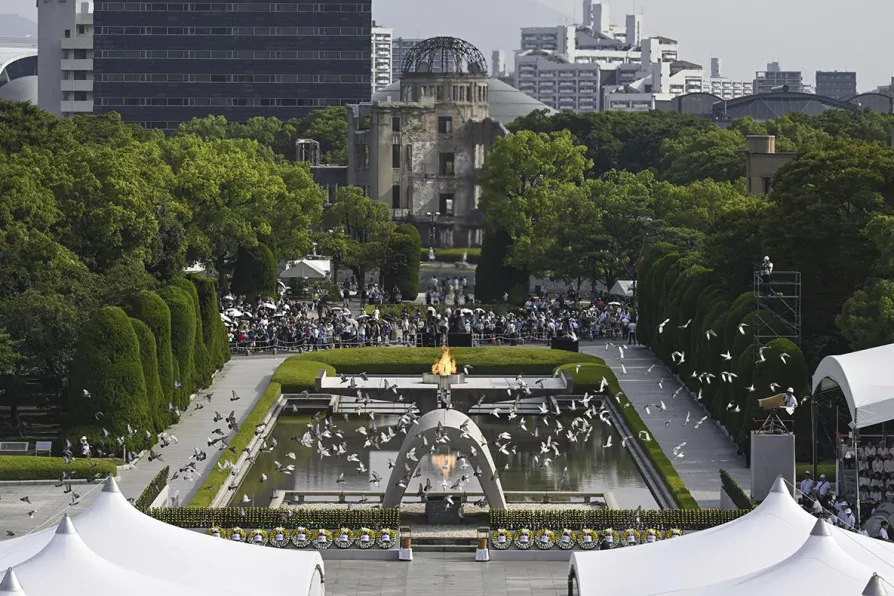Investigators says Ukraine may be behind the attack

 Doves fly over the cenotaph dedicated to the victims of the atomic bombing during an annual ceremony marking the 79th anniversary of the world's first atomic bombing, at the Peace Memorial Park in Hiroshima, western Japan, August 6, 2024
[Yu Nakajima/Kyodo News via AP]
Doves fly over the cenotaph dedicated to the victims of the atomic bombing during an annual ceremony marking the 79th anniversary of the world's first atomic bombing, at the Peace Memorial Park in Hiroshima, western Japan, August 6, 2024
[Yu Nakajima/Kyodo News via AP]
NUCLEAR disarmament is not a pipe dream but an immediate priority to prevent current wars turning apocalyptic, crowds gathering in Hiroshima on the 79th anniversary of the first atomic bombing heard today.
Hiroshima Governor Hidehiko Yuzaki said advocates of nuclear deterrence — including the Japanese government which places itself under the “nuclear umbrella” of the United States, the only country ever to have used these weapons — ignore the fact that “as long as nuclear weapons exist, they will surely be used again someday.
“Abolition is not an ideal to achieve far in the future — it is a pressing issue that we should desperately engage in at this moment.”

As we mark the anniversaries of the Hiroshima and Nagasaki bombings, JOHN WIGHT reflects on the enormity of the US decision to drop the atom bombs

JEREMY CORBYN reports from Hiroshima where he represented CND at the 80th anniversary of the bombing of the city by the US

Ageing survivors of the Hiroshima and Nagasaki atomic bombings are increasingly frustrated by growing nuclear threats by global leaders











